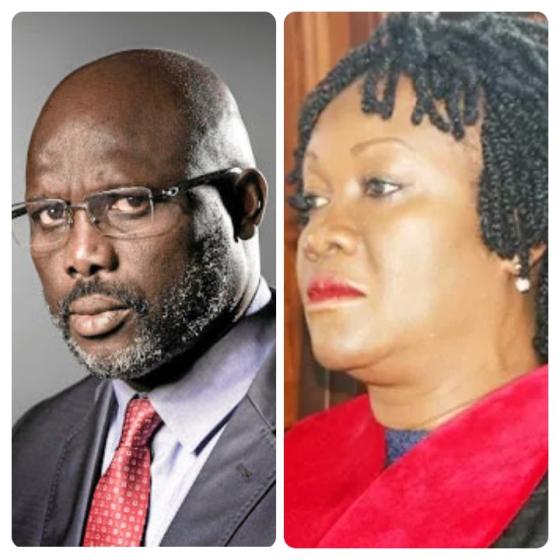Liberia: Chief Justice Takes New Stab at Judicial Salary Harmonization

.... “By virtue of the fact that the standardization act targets only employees of the government, can it be classified as a national program,” Yuoh claims.
Chief Justice Sie-A-Nyene Yuoh has accused the administration of President George Weah of violating Article 72 (a) of the country’s constitution when he signed into law the remuneration act of 2019, which reduced justices’ and judges’ salaries and benefits benefit.
Yuoh, who was appointed by Weah in 2022 claimed that Article 72 provides reason for, and how to cut allowances and benefits of judges, but the remuneration act falls short of that.
According to her, the 2019 Act is not a defined national program for which the salaries and benefits of justices and judges had to be reduced.
Article 72(a) says Justices of the Supreme Court and all other judges shall receive such salaries, allowances and benefits as shall be established by law, which may by law be increased but not diminished except under a national program enacted by the legislature.
“A national program is a set of related measures or activities with a particular long term aim,” Yuoh said in the presence of President George Weah, Speaker Bhofal Chambers and Pro Tempore Senator Albert Chie.
Yuoh however admitted that the Constitution does not give an inference as to what constitutes a national program.
But by the definition, she said, a national program is a set of related measures or activities with a particular long-term aim that relates to the nation and its people.
“But the standardization act targets only a specific group of government employees rather than the national, including the private sector,” the Chief Justice said. “By virtue of the fact that the standardization act targets only employees of the government, can it be classified as a national program?”
“This is the law and, simply put, salaries of justices and judges cannot be diminished by the Legislature and or the Executive Branches of the Government except under a national program enacted by the legislature.”
But Youh remains firm in her belief that the remuneration act of 2019 was passed contrary to the Constitution, making it a constitutional violation.
The harmonization, which Youh is now having problems with, ended justices’ and judges' non-taxable pay, which came as an allowance and drastically reduced their benefits.
The Weah administration argued at the time that the change was necessary to ensure a uniform structure of salaries, allowances, and benefits across government, while cutting down wasteful spending.
However, members of the justices and judges have continued to publicly complain that the act is “illegitimate”, as well as “discriminatory and unconstitutional”.
And two years after the act became law, judges sought a court’s approval to declare the remuneration act of 2019 unconstitutional.
However, the lawsuit was withdrawn as the Weah government argued that its action was in compliance with Article 72(a) of the Constitution, which forbids reducing judges’ allowances and perks “unless under a national program established by the Legislature,” as it did in 2019.
Also, Chief Justice Youh’s statement about the remuneration act comes about two months after the General Auditing Commission accused the Weah administration of not implementing the issues of salary harmonization across all entities of government.
According to the GAC, this leads to huge numbers of public workers earning below the above and established pay-grades, while others have no established pay-grade.
The GAC report noted that a significant number of government workers were receiving more than the harmonized pay-grade salary, while some ministries and agencies made arbitrary increments in the net salaries of some workers.
